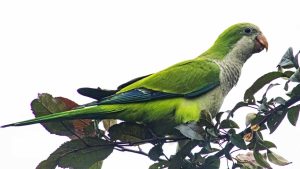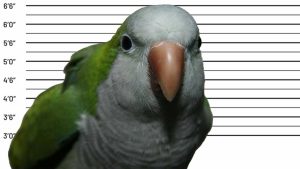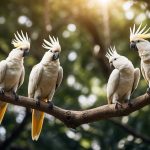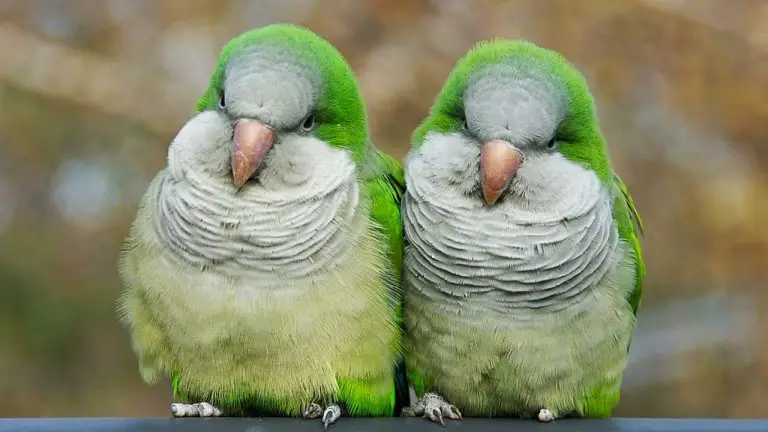What Do Quaker Parrots Eat? Discover Their Favorite Foods Now!
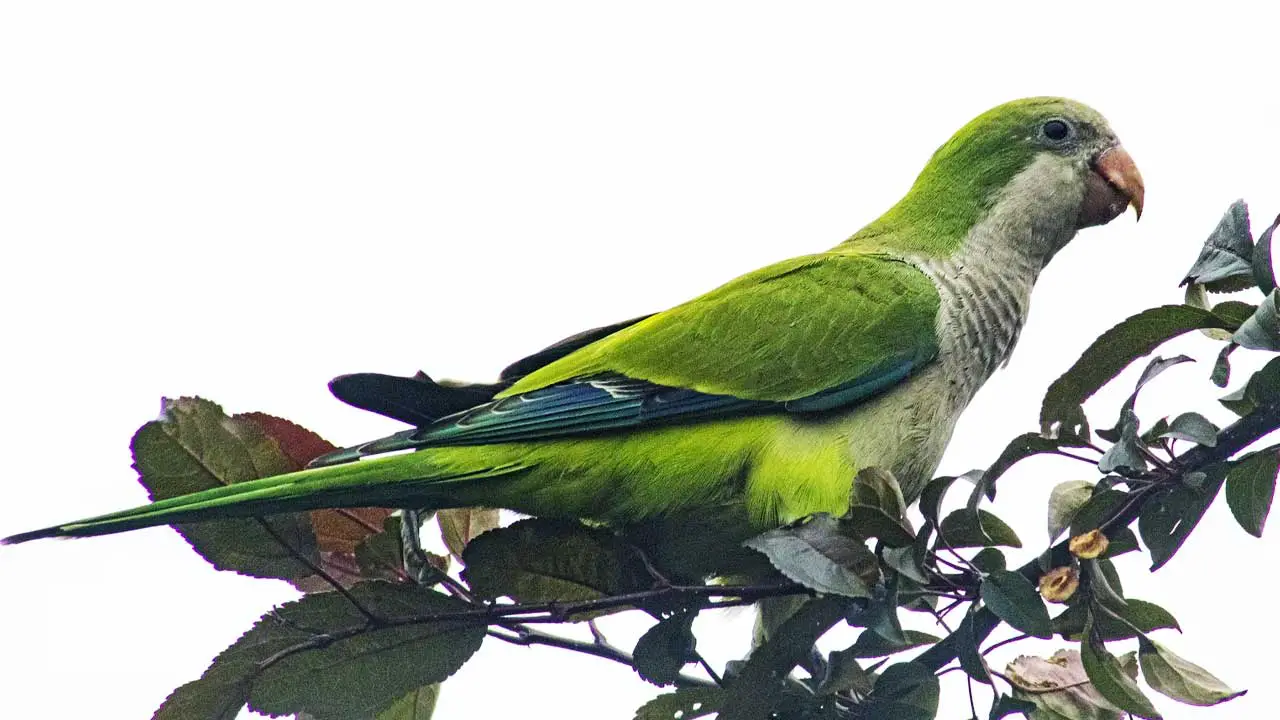
When it comes to feeding our feathered friends, it’s important to know what they can and can’t eat. As a proud owner of a Quaker parrot, I’ve done my fair share of research on what to feed my little buddy.
Quaker parrots, also known as monk parakeets, are a popular pet bird known for their playful personalities and intelligence. But what do quaker parrots eat?
The Short Answer
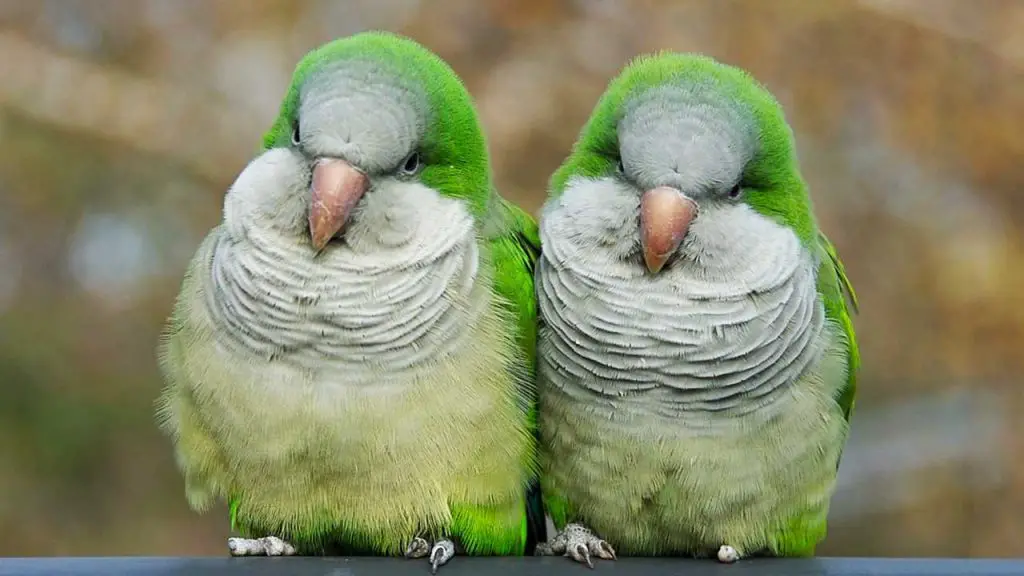
Well, Quaker parrots are omnivores, which means they eat both plants and animals. In the wild, they primarily feed on seeds, fruits, and insects. As pets, it’s important to provide them with a balanced diet that includes a variety of fruits, vegetables, grains, and proteins. However, it’s important to note that not all fruits and vegetables are safe for birds, so it’s important to do your research and consult with a veterinarian to ensure your bird is getting the proper nutrition.
Table of Contents
What Do Quaker Parrots Eat?
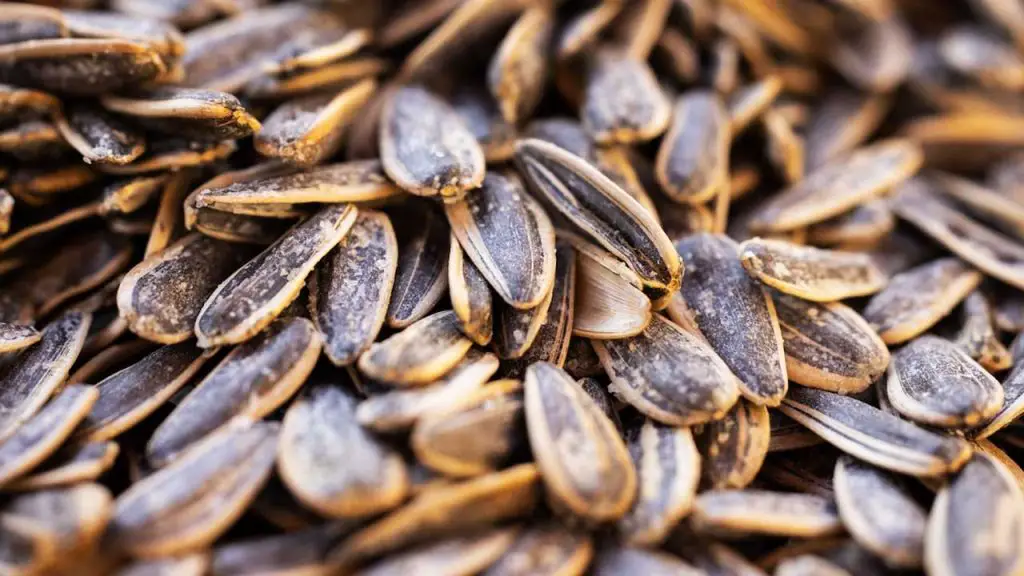
As a proud owner of a Quaker parrot, I know how important it is to provide them with a balanced and nutritious diet. In this section, I will share my knowledge about what Quaker parrots eat and how to keep them healthy.
Fruits and Vegetables
Fruits and vegetables are essential for a Quaker parrot’s diet. They provide important vitamins, minerals, and antioxidants that keep your pet healthy and happy.
Some of the best fruits for Quaker parrots are apples, bananas, oranges, pears, and pomegranates. These colorful fruits are rich in vitamin A and antioxidants, which help boost your bird’s immune system.
When it comes to vegetables, Quaker parrots love kale, broccoli, peppers, and root vegetables like carrots and sweet potatoes.
These veggies are rich in calcium and vitamin C, which help promote healthy bones and skin. It’s important to offer a variety of fresh fruits and vegetables to your Quaker parrot to ensure they get all the nutrients they need.
Seeds and Nuts
Seeds and nuts are a great source of protein and energy for Quaker parrots.
However, it’s important to offer them in moderation as they are high in fat.
Sunflower seeds, millet, and peanuts are popular choices for Quaker parrots, but make sure to offer them in small quantities.
Almonds and pistachios are also great options, but make sure to remove the shells before feeding them to your bird.
Pellets and Formula
Commercially formulated pellets and formula are a great way to ensure your Quaker parrot gets a balanced diet. These products are specifically designed to meet the nutritional needs of Quaker parrots and are available in different flavors and sizes. Pellets are a great way to provide your bird with a balanced diet, but make sure to offer them in addition to fresh fruits and vegetables.
In conclusion, a varied diet is essential for the health and well-being of Quaker parrots. Make sure to offer a variety of fresh fruits and vegetables, seeds and nuts, and commercially formulated pellets to ensure your bird gets all the nutrients they need. With proper care and attention, Quaker parrots can live a long and happy life as your loyal and affectionate companion.
What Do Quaker Parrots Eat in the Wild?
I have always been fascinated by the feeding habits of Quaker parrots in the wild. These birds are native to South America and have been introduced to many parts of the world, including the United States. In the wild, Quaker parrots are omnivores and feed on a variety of foods.
One of the primary foods that Quaker parrots eat in the wild is seeds.
They are known to eat a wide variety of seeds, including those from grasses, trees, and plants. These birds have strong beaks that are adapted to cracking open tough seed shells. They also use their beaks to break open nuts and other hard food items.
In addition to seeds, Quaker parrots also eat fruits and vegetables. They are particularly fond of berries, apples, pears, and bananas.
Quaker birds also eat leafy greens, such as spinach and kale, as well as carrots and other root vegetables. Quaker parrots are also known to eat flowers and nectar.
Interestingly, Quaker parrots are also known to eat insects and other small animals. They will hunt for insects, such as grasshoppers and beetles, and even eat small lizards and rodents.
This makes them opportunistic feeders and able to adapt to a wide range of food sources.
Overall, the diet of Quaker parrots in the wild is varied and diverse. They are able to eat a wide range of foods, which allows them to survive in different environments and adapt to changing conditions. As a bird lover, I find it fascinating to learn about the feeding habits of these intelligent and adaptable birds.
What Foods Should Quaker Parrots Avoid?
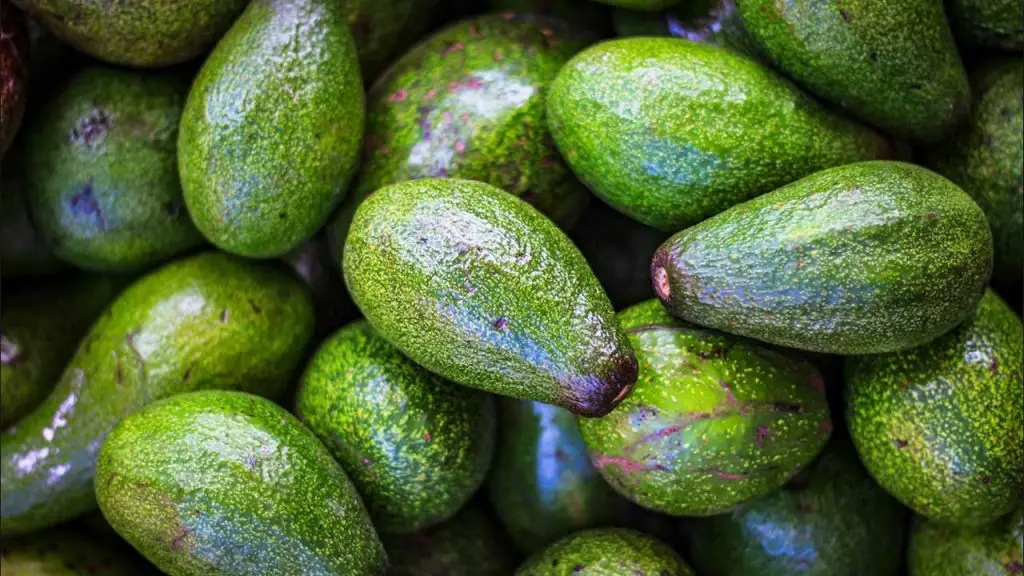
I always want to make sure that my feathered friend is happy and healthy. One of the best ways to do this is by feeding them a balanced diet that includes a variety of foods. However, it’s important to know which foods to avoid to prevent any health issues.
One food that Quaker parrots should avoid is avocado. Avocado contains persin, which can be toxic to birds and cause breathing difficulties, heart damage, and even death. It’s best to avoid feeding your Quaker parrot any part of the avocado, including the flesh and the pit.
Another food that should be avoided is chocolate. Chocolate contains theobromine, which can be toxic to birds and cause vomiting, diarrhea, seizures, and even death. It’s best to keep all types of chocolate away from your Quaker parrot.
Foods that are high in salt or sugar should also be avoided. These include processed foods, junk foods, and sugary treats. High levels of salt or sugar can lead to health issues such as obesity, heart disease, and diabetes.
Lastly, Quaker parrots should avoid any food that has been treated with pesticides or other chemicals. These chemicals can be harmful to birds and can cause health issues such as respiratory problems, digestive issues, and even death. It’s best to choose organic fruits and vegetables or wash them thoroughly before feeding them to your Quaker parrot.
Overall it’s so important to know which foods to avoid when feeding your Quaker parrot. By avoiding foods such as avocado, chocolate, high-salt or high-sugar foods, and chemically-treated foods, you can help keep your feathered friend healthy and happy for a long time. Best of luck!


